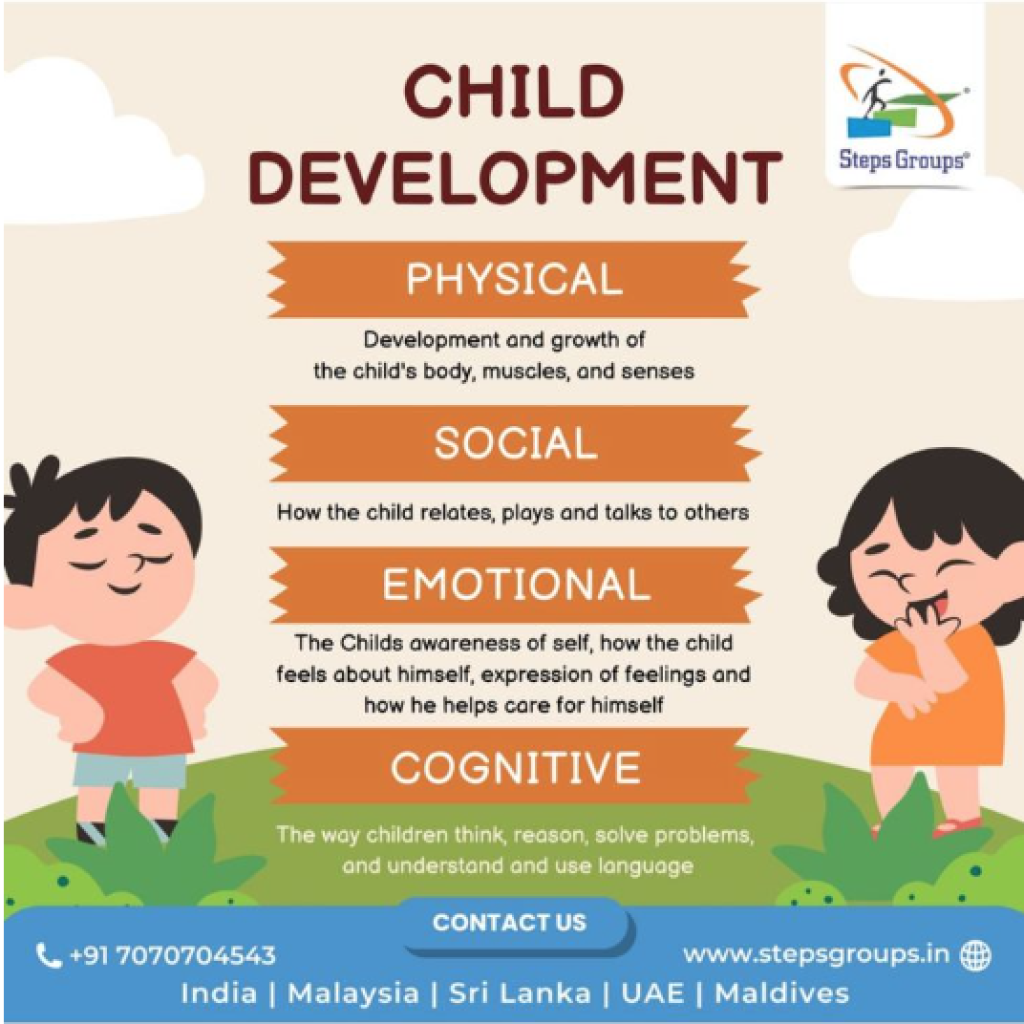Child Development: What is it and Why is it Important?

Child development is a critical aspect of a child’s life, encompassing their physical, social, emotional, and cognitive growth. It reflects how children grow, change, and learn new skills as they age. By understanding these different stages, parents, educators, and caregivers can support their needs better, helping them to thrive in all aspects of life.

Factors Affecting Child Development
- Genetic Factors: Traits inherited from parents, such as intelligence, physical attributes, and temperament, can influence how a child grows and learns.
- Environmental Factors: Exposure to nurturing, education, nutrition, and even toxins in the environment can significantly shape physical and mental growth.
- Parental Interaction: A supportive, loving, and responsive environment boosts a child’s emotional security and cognitive development, while neglect or harsh discipline can negatively impact growth.
- Socioeconomic Status: Children from financially stable households often have better access to education, healthcare, and recreational activities, which can foster more balanced development.
- Nutrition: Proper nutrition is essential for physical and brain development. Malnutrition during the early years can lead to developmental delays and long-term health issues.
- Health: A child’s physical and mental health can significantly affect development. Conditions such as chronic illness or developmental disorders can influence their ability to learn and grow socially or emotionally.
- Cultural Influences: Cultural norms and values can impact a child’s development, particularly in terms of social behavior, language acquisition, and how they interact with their environment.
Areas of Child Development
- Physical Development
Physical development includes the growth of a child’s muscles, senses, and body structure. It focuses on how children gain control over their motor skills, balance, and coordination.
- Social Development
Social development deals with how children relate to others, including playing, interacting, and communicating. Social skills are crucial for emotional intelligence and can positively impact their long-term relationships.
- Emotional Development
Emotional development involves their self-awareness and their ability to express and manage feelings. Children who are emotionally developed can handle stress better, express their emotions healthily, and build stronger self-esteem. It is essential to teach children emotional resilience from an early age to help them cope with life’s ups and downs.
- Cognitive Development
Cognitive development refers to how children think, solve problems, and understand their environment. This includes reasoning, decision-making, and language skills.
Steps Groups offers child development as a journey that shapes who children will become as they grow. By focusing on these aspects, you ensure that children are well-equipped to succeed in school and life.


